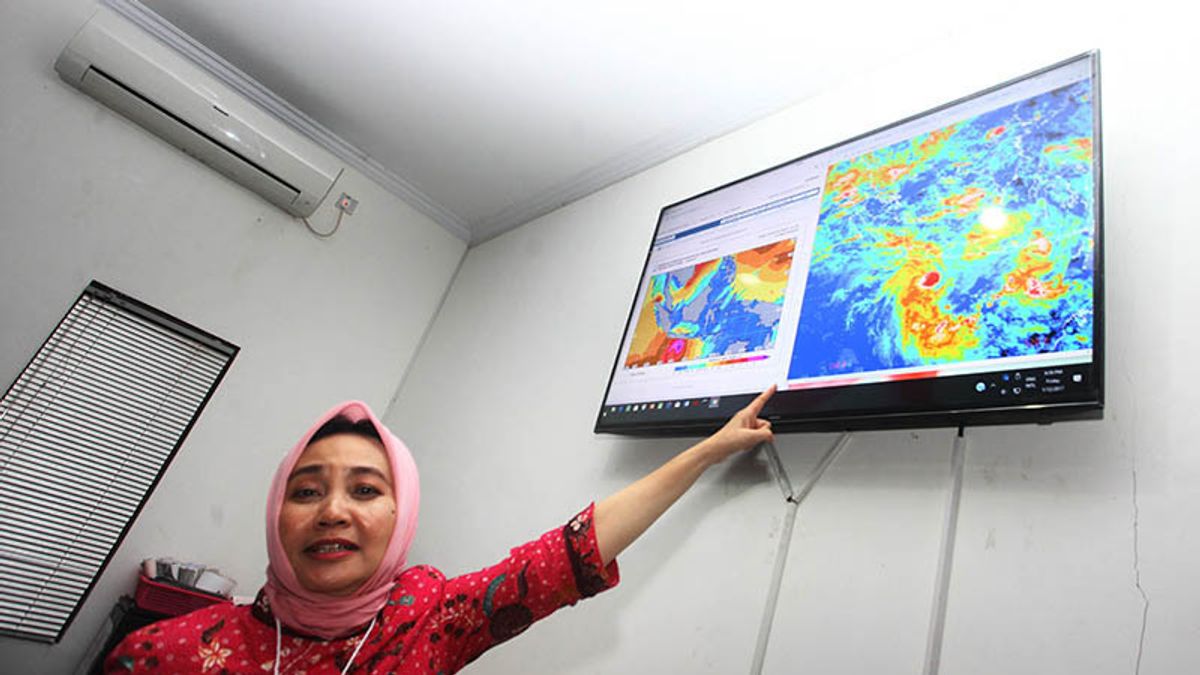JAKARTA - The Meteorology, Climatology and Geophysics Agency (BMKG) asks for the full commitment of local governments in mitigating and adapting to climate change. The role of local governments is considered very important because the pace of development in the regions is massive. because it must start from the regional head which is embodied in the regional medium-term development plan (RPJMD)," said BMKG Head Dwikorita Karnawati through a press release received in Jakarta, reported by Antara, Friday, August 6.
Dwikorita stated this in a webinar held by the Deputy for Climatology, BMKG, Friday, August 6, which was attended by the Director General of Sustainable Forest Management at the Ministry of Environment and Forestry Agus Justianto, Christoph Zellwenger from the Global Atmospheric Watch (GAW) World Calibration Center, and Martin Steinbacher from the Science Activity Center, Switzerland. According to Dwikorita, district/city governments must prepare for the worst possible natural disasters and the impacts of climate change, such as tropical storms, floods, flash floods, landslides, strong winds, and droughts which are predicted to occur more often with stronger intensity. That, he said, was melting ice at the peak of Jaya Wijaya Papua which was predicted by the BMKG to be extinct in 2025 and rising sea levels. He emphasized that mitigation and adaptation to climate change was urgent to prevent greater risks and losses.
Dwikorita reminded that efforts to overcome the problem of climate change is quite a challenging task because it requires a commitment of mutual cooperation and strong connectivity from the central to regional levels with comprehensive and real efforts. massive prevention of forest and land fires, promoting the use of renewable energy and reducing the use of fossil energy, as well as implementing environmentally friendly transportation and infrastructure development. shared concerns and threats that must also be mitigated together, because the impact knows no administrative boundaries. The community must also be involved, not only the government," he said. Dwikorita revealed a number of facts released by the World Meteorological Organization (WMO) that the temperature 2020 became one of the 3 hottest years ever recorded despite the La Nina. In addition, the global average temperature of the Earth's surface has now reached 1.2 degrees Celsius higher than in the 1850s. In Indonesia, continued Dwikorita, based on According to BMKG observations, 2020 is the second hottest year on record and observations from 91 BMKG stations which show the average surface temperature in 2020 is 0.7 degrees Celsius higher than the average reference period of 1981-2010. he triggered a shift in seasonal patterns and air temperature which resulted in an increase in the frequency and intensity of hydrometeorological disasters, one of which was forest and land fires which were not only affected by extreme drought conditions, but also led to an increase in carbon and particulate emissions into the air. We can all pay attention to prevent global warming from getting worse," he concluded.
The English, Chinese, Japanese, Arabic, and French versions are automatically generated by the AI. So there may still be inaccuracies in translating, please always see Indonesian as our main language. (system supported by DigitalSiber.id)









